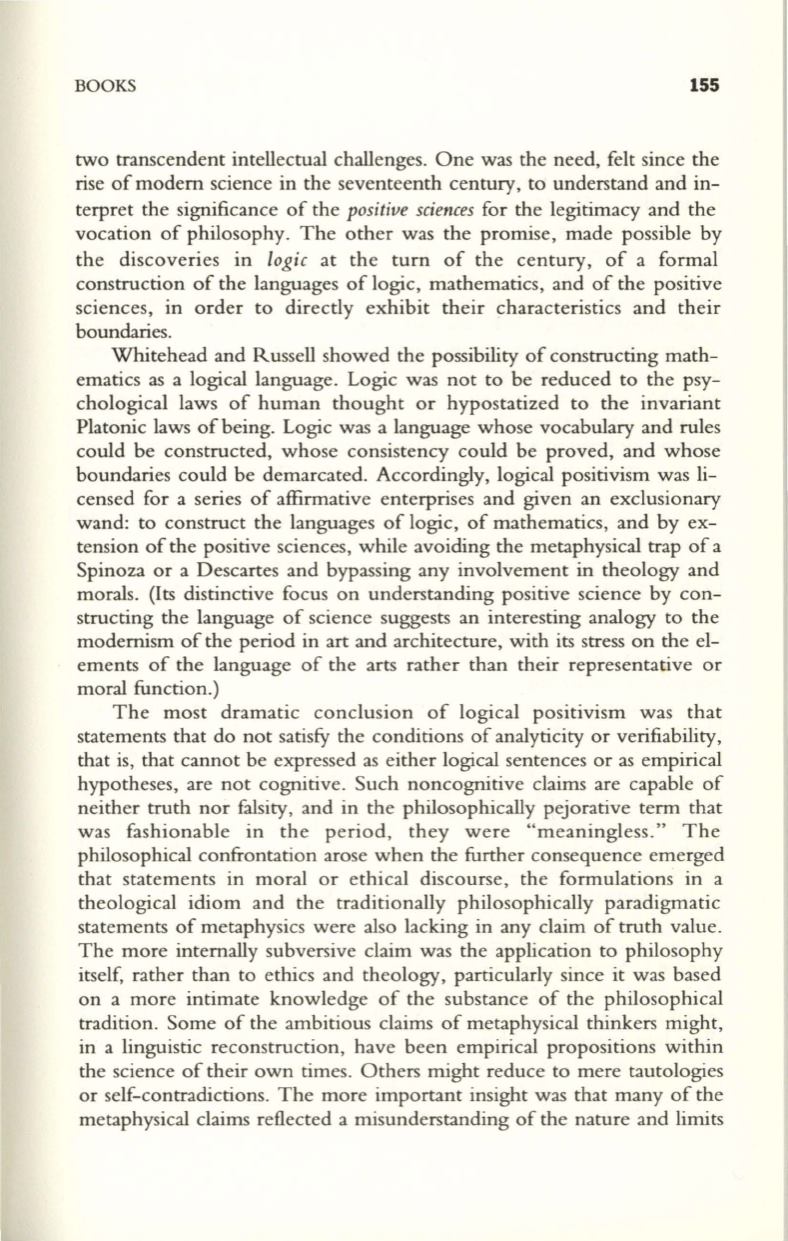
BOOKS
155
two transcendent intellectual challenges. One was the need, felt since the
rise of modem science in the seventeenth century, to understand and in–
terpret the significance of the
positive sciences
for the legitimacy and the
vocation of philosophy. The other was the promise, made possible by
the discoveries in
logic
at the turn of the century, of a fonnal
construction of the languages of logic, mathematics, and of the positive
sciences, in order to directly exhibit their characteristics and their
boundaries.
Whitehead and Russell showed the possibility of constructing math–
ematics as a logical language. Logic was not to be reduced to the psy–
chological laws of human thought or hypostatized to the invariant
Platonic laws of being. Logic was a language whose vocabulary and rules
could be constructed, whose consistency could be proved, and whose
boundaries could be demarcated. Accordingly, logical positivism was li–
censed for a series of afEnnative enterprises and given an exclusionary
wand: to construct the languages of logic, of mathematics, and by ex–
tension of the positive sciences, while avoiding the metaphysical trap of a
Spinoza or a Descartes and bypassing any involvement in theology and
morals. (Its distinctive focus on understanding positive science by con–
structing the language of science suggests an interesting analogy to the
modernism of the period in art and architecture, with its stress on the el–
ements of the language of the arts rather than their representative or
moral function.)
The most dramatic conclusion of logical positivism was that
statements that do not satisfY the conditions of analyticity or verifiability,
that is, that cannot be expressed as either logical sentences or as empirical
hypotheses, are not cognitive. Such noncognitive claims are capable of
neither truth nor falsity, and in the philosophically pejorative tenn that
was fashionable in the period, they were "meaningless." The
philosophical confrontation arose when the further consequence emerged
that statements in moral or ethical discourse, the fonnulations in a
theological idiom and the traditionally philosophically paradigmatic
statements of metaphysics were also lacking in any claim of truth value.
The more internally subversive claim was the application to philosophy
itself, rather than to ethics and theology, particularly since it was based
on a more intimate knowledge of the substance of the philosophical
tradition. Some of the ambitious claims of metaphysical thinkers might,
in a linguistic reconstruction, have been empirical propositions within
the science of their own times. Others might reduce to mere tautologies
or self-contradictions. The more important insight was that many of the
metaphysical claims reflected a misunderstanding of the nature and limits


